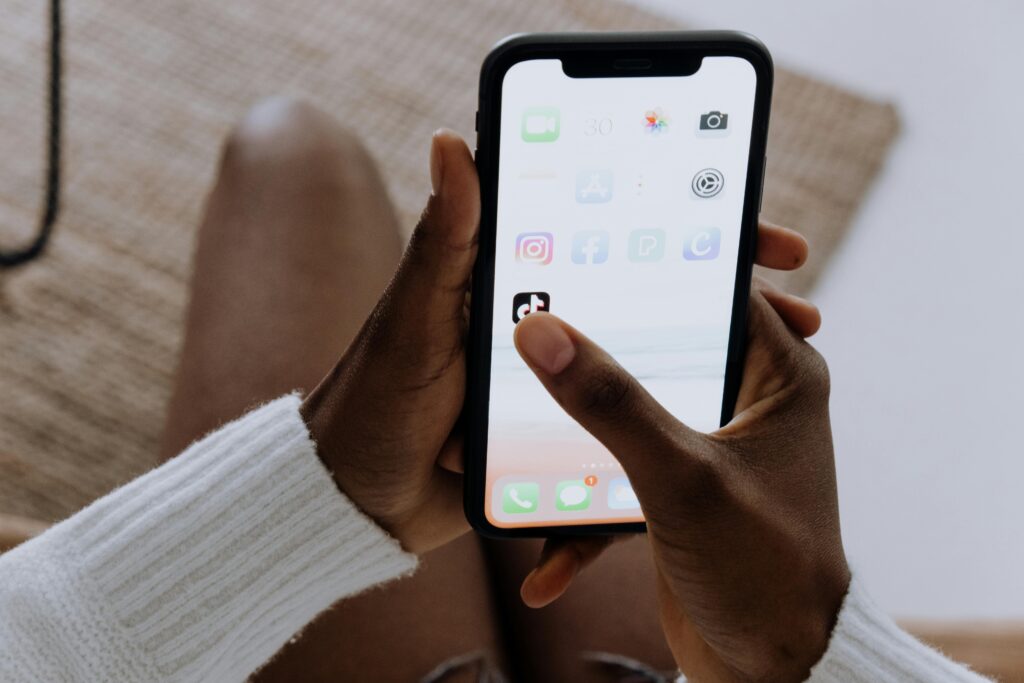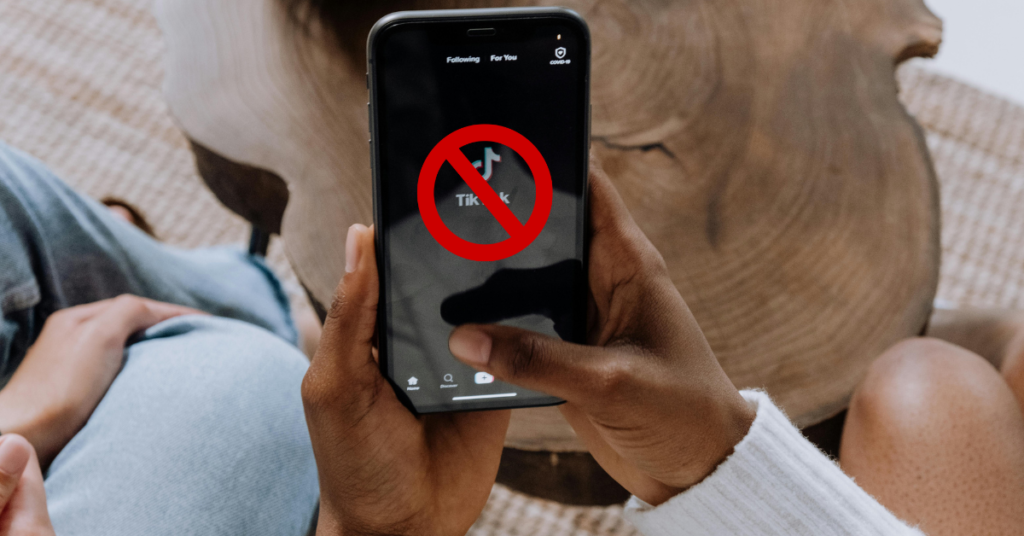Table of Contents
TikTok Ban: Introduction
In the ever-evolving landscape of social media, few platforms have sparked as much controversy and debate as TikTok. The popular app, known for its short, catchy videos, has become a staple of digital culture worldwide. However, in 2024, TikTok faces a new and potentially existential challenge in the United States.
The U.S. House of Representatives has passed a bill that could force ByteDance, TikTok’s Chinese parent company, to divest the app’s U.S. operations or face a ban. This move, steeped in bipartisan support, marks the most significant threat to TikTok’s operation in the U.S. since its inception. As this situation unfolds, millions of Americans who use the app for entertainment, expression, and livelihood are caught in the crossfire, pondering the future of their favorite social media platform.

Background of TikTok in the U.S.
Since its global launch, TikTok has rapidly ascended to become one of the most influential social media platforms, captivating users with its innovative content and algorithms. In the United States alone, the app boasts about 170 million active users, ranging from teens to adults, all drawn to its unique blend of entertainment, creativity, and community. Despite its popularity, TikTok has not been without its controversies, particularly regarding data privacy and national security concerns. The platform’s Chinese ownership has been a point of contention, leading to previous attempts by the U.S. government to restrict or ban its operations. These efforts, notably during the Trump administration, set a precedent of scrutiny and skepticism toward TikTok, culminating in the 2024 ban proposal.
The 2024 Ban Proposal
The latest chapter in the saga of TikTok’s struggle in the United States unfolded with the House’s decisive vote. By an overwhelming margin, lawmakers agreed on a bill that puts ByteDance under pressure to divest TikTok’s U.S. assets within six months. The bill’s passage reflects growing apprehension over foreign-owned applications and their implications for U.S. national security. Supporters of the ban argue that it is a necessary step to protect American data from potential misuse by foreign entities.
In response to the legislative action, TikTok has voiced its commitment to safeguarding user data through U.S.-based protections. The company emphasized its efforts to address national security concerns transparently, expressing disappointment over the bill’s secretive process and rapid advancement. Despite TikTok’s reassurances and the vocal opposition from its user base, the political tide appears to be shifting, with significant support for the bill’s objectives both in Congress and the White House. National Security Advisor Jake Sullivan articulated the administration’s stance, framing the issue as a choice between American ownership and control of the platform versus foreign influence.

Stakeholder Perspectives
The proposed TikTok ban has elicited a range of responses from different quarters, highlighting the complex web of interests at play. Lawmakers have largely backed the bill, citing national security concerns as the primary driver. The bipartisan support for the bill underscores the growing apprehension towards foreign technology firms and their influence within the United States. However, not all political figures are in agreement. Prominent Democrats, including Alexandria Ocasio-Cortez and other members of the House, have expressed reservations. They argue for a more transparent discussion about the national security implications and caution against potential overreach and violation of antitrust and privacy principles.
On the other side of the debate, TikTok and its supporters have mounted a vigorous defense. The company has taken steps to reassure both the public and policymakers of its commitment to data security, emphasizing efforts to localize data storage and processing within the U.S. TikTok’s CEO, Shou Zi Chew, even made a trip to Washington, D.C., to personally engage with senators, signaling the company’s proactive stance in addressing lawmakers’ concerns.
The public reaction, particularly from TikTok’s predominantly young user base, has been one of vocal opposition to the ban. Users have organized rallies and social media campaigns to express their discontent, highlighting the platform’s role in fostering creativity, community, and free expression. This public outcry reflects a broader debate over digital rights and the role of government in regulating online spaces.
Comparisons with Previous Ban Attempts
The 2024 TikTok ban proposal is not the first attempt to restrict the app’s operations in the U.S. The Trump administration had previously sought to ban TikTok in 2020, citing similar national security concerns. However, those efforts were stymied by legal challenges and court rulings that questioned the government’s authority to enforce such a ban outright. Comparatively, the 2024 proposal appears to have garnered more structured support within Congress, suggesting a more concerted effort to address the perceived threats posed by TikTok.
Unlike previous attempts, the current proposal includes a specific pathway for ByteDance to avoid a ban—through the divestiture of TikTok’s U.S. operations. This nuance represents an evolution in the government’s approach, potentially offering a compromise that addresses national security concerns while allowing TikTok to continue operating in the U.S. market.

Implications of a Potential Ban
The potential ban on TikTok carries far-reaching implications for various stakeholders. For users and creators, it threatens to disrupt a vibrant online community that has become a significant source of entertainment, expression, and even livelihood for millions. The ban could also set a precedent for how the U.S. government addresses concerns with other foreign-owned platforms in the future, impacting the broader social media ecosystem.
From a national security perspective, the ban represents an effort to mitigate potential risks associated with foreign ownership of major technology platforms. However, it also raises questions about the balance between security and privacy, and the extent to which the government should intervene in the digital economy.
Globally, the situation underscores the challenges of regulating the internet across national borders. A U.S. ban on TikTok could prompt retaliatory measures or inspire similar actions by other countries, leading to a fragmented digital landscape marked by increased censorship and regulation.
Alternatives and Solutions
As the debate over TikTok’s future in the U.S. continues, several alternatives to a complete ban have been proposed. One potential solution is the divestiture of TikTok’s U.S. operations to an American company, which could alleviate national security concerns while allowing the platform to operate independently. This approach, however, is contingent on finding a suitable buyer and navigating complex legal and regulatory hurdles.
Legal and Regulatory Framework Enhancement
One promising avenue for addressing the concerns without a total ban is enhancing the legal and regulatory framework governing data security and privacy. By setting stringent standards for data protection, the U.S. could ensure that TikTok, and similar platforms, operate in a manner that safeguards user data against misuse. This approach requires a collaborative effort between government bodies, technology companies, and privacy advocates to create regulations that balance security concerns with the benefits of global digital platforms.
Technology Solutions
Adopting advanced technology solutions for data protection could also serve as an alternative to banning TikTok. Through state-of-the-art encryption and secure data handling practices, TikTok could mitigate risks to national security. Such measures, coupled with transparent audits and compliance checks, might reassure both the government and the public of the app’s commitment to user safety.
The Global Implications of a Potential Ban
Impact on International Relations
A U.S. ban on TikTok could strain relations with China, impacting broader diplomatic and economic interactions between the two countries. Given the global nature of the digital economy, actions taken against TikTok could have reciprocal effects on American companies operating in China, leading to a tit-for-tat scenario that harms the interests of both nations.
The Precedent for Digital Sovereignty
The situation with TikTok highlights the concept of digital sovereignty, where nations assert control over digital activities within their borders. This move by the U.S. could inspire other countries to adopt similar stances toward foreign-owned tech companies, potentially leading to a more fragmented and isolated digital world. Such developments could hinder the global exchange of ideas, cultures, and innovations, fundamentally altering the internet’s open and interconnected nature.

Conclusion: Navigating the Digital Future
The TikTok ban in 2024 presents a critical juncture in the intersection of technology, politics, and society. As we grapple with the implications of this potential ban, it becomes clear that the challenges we face are not merely about a single app or company but reflect broader questions about the role of technology in our lives and the values we wish to uphold in the digital age.
Moving forward, it is imperative for policymakers, technology leaders, and the global community to engage in open, constructive dialogues about how to manage the risks and rewards of digital innovation. Finding a path that respects national security, privacy, and freedom of expression requires a nuanced approach, one that considers the diverse interests and concerns of all stakeholders involved.
As we navigate these complex waters, the TikTok saga serves as a poignant reminder of the delicate balance between protecting our digital borders and fostering a vibrant, open internet. The decisions we make today will set precedents for how we manage and interact with technology tomorrow, shaping the future of digital freedom, creativity, and connectivity for generations to come.
FAQs
Is a TikTok ban definite in 2024?
The future of TikTok in the U.S. remains uncertain. While the House of Representatives has passed a bill that could lead to a ban if ByteDance does not divest its U.S. operations, the bill still faces challenges in the Senate and from public opposition.
How would a TikTok ban affect users?
A ban could disrupt the community of creators and users who rely on the platform for entertainment, expression, and income. It may also limit the diversity of digital content and social media experiences available to Americans.
Can TikTok’s security concerns be resolved without a ban?
Yes, through divestiture to a U.S. company, enhanced regulatory oversight, or advanced technology solutions for data protection, TikTok’s security concerns could potentially be addressed without resorting to a complete ban.
What does TikTok say about the ban?
TikTok has expressed a commitment to protecting user data and addressing national security concerns through U.S.-based data management and transparency. The company continues to seek dialogue with lawmakers to find a resolution.
How does the TikTok situation reflect broader digital policy issues?
The TikTok case illustrates the challenges of regulating global digital platforms in a way that balances national security, privacy, and freedom of expression. It underscores the need for comprehensive digital policies that consider the complexities of the modern technological landscape.
